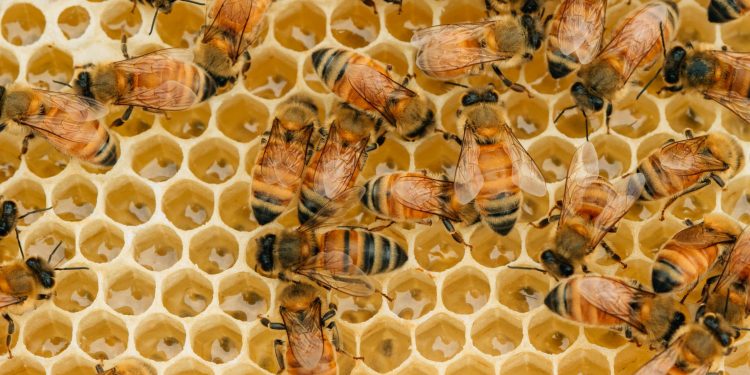Beekeeping is more than just a tradition passed down through generations; it’s an industry ripe with potential for innovation and growth. For entrepreneurs looking to venture into this field, new technologies are revolutionizing the way beekeeping is practiced, making it more efficient, sustainable, and profitable. These innovations offer a game-changing opportunity to capitalize on a growing market, address environmental concerns, and tap into new revenue streams.
1. Beekeeping Record Management Apps:
Streamlining Operations and Decision-Making
This is one of the lessons I learnt the hard way. Effective record management is vital for any successful beekeeping operation. Traditional methods, such as pen-and-paper logs, can be cumbersome, time-consuming, and prone to errors. However, it is better to have these than no records at all.
With a rise in technology, innovative digital tools have been designed to help beekeepers efficiently track and manage their hive activities, health data, production rates, and financial records. Beekeeping apps provide a user-friendly interface where beekeepers can log key data points such as hive inspections, treatments, feeding schedules, queen status, and honey yields. Many apps also integrate with smart hives and sensors, automatically syncing real-time data to give beekeepers a comprehensive overview of their operations.
For entrepreneurs, these apps offer a clear advantage by streamlining data collection and analysis, leading to more informed decision-making. Having accurate records on hive performance and health trends allows beekeepers to identify patterns and respond proactively to challenges, such as pest infestations or declining honey production.
Furthermore, these apps often include features for financial management, such as tracking expenses, calculating profitability, and generating reports. This makes it easier for entrepreneurs to manage their business operations, optimize costs, and plan for growth. With data at their fingertips, they can also prepare more effectively for audits, apply for certifications, and meet regulatory requirements.
Beekeeping record management apps are therefore a powerful tool for entrepreneurs looking to scale their beekeeping businesses. By leveraging these digital solutions, beekeepers can save time, reduce administrative overhead, and enhance the overall efficiency and productivity of their operations. In a market that demands precision and agility, these apps are indispensable for staying competitive and driving success.
I personally have transitioned from using books [I had like 7 different books for my records – Beehive records, vegetation records, payments and expenses records, income records, inventory, harvesting records etc]. I now use an app for my beekeeping records and honestly can’t understand how I managed to survive without it. With just a click I can view my hives which are in different apiaries.
2. Automated Beekeeping Systems:
Simplifying Hive Management
Automated beekeeping systems are transforming hive management by automating routine tasks
such as feeding, ventilation, and pest control. These systems use AI-driven algorithms to
analyze data from smart hives and execute actions like adjusting the hive environment,
providing supplementary food, or deploying natural pest deterrents.
Smart hives are at the forefront of innovative beekeeping technologies. These hives are equipped with sensors that monitor various parameters such as temperature, humidity, hive weight, and even the sounds inside the hive. Using real-time data, beekeepers are able to monitor the health and behavior of their colonies remotely, reducing the need for frequent manual inspections that can disrupt the bees. You don’t want to open your hive for any reason other than harvesting honey.
For entrepreneurs, these systems represent an efficient way to manage multiple colonies at once, reducing labor costs and increasing productivity. They also ensure consistency in hive management practices, leading to healthier bee colonies and higher honey yields, early detection of issues like diseases or swarming, allowing for timely interventions that can save colonies and prevent financial losses.
By embracing automation, beekeepers can focus on strategic growth areas like product development and market expansion.
3. Bee Tracking Technologies:
Enhancing Pollination Efficiency
Pollination is a critical service provided by bees, and tracking their movements can offer valuable insights into their behavior and health. Bee tracking technologies, such as RFID tags and GPS devices, are now being used to monitor bee activity patterns, foraging routes, and habitat preferences. This data helps beekeepers understand which plants and crops are being pollinated, allowing them to optimize their placement of hives for maximum pollination efficiency and honey production.
For entrepreneurs, bee tracking can open new revenue streams by offering targeted pollination services to farmers, enhancing crop yields, increasing honey production and fostering partnerships in the agricultural sector. It also allows beekeepers to demonstrate the value of their services, building trust and credibility with clients
4. Blockchain for Honey Traceability:
Building Consumer Trust
One of the most common questions my customers ask me when I sell them my honey “Masaku Honey” is: “Which region is this honey from?”
In today’s market, consumers are increasingly concerned about the authenticity and origin of their food products. Blockchain technology offers a solution by providing a transparent and tamper-proof way to trace honey from hive to jar. By implementing blockchain, beekeepers can ensure that their honey is pure and ethically sourced, which is especially important in a market where adulteration is a significant concern.
Blockchain technology also provides the farmer by recording data such as the origin of the honey, harvesting dates, processing methods, and transportation details. Blockchain enables beekeepers to provide transparent and verifiable proof of their product’s quality and authenticity. This is particularly helpful when applying for compliance certifications.
Entrepreneurs who adopt blockchain for honey traceability can differentiate their products, build consumer trust, and command premium prices. This technology also opens up opportunities for direct-to-consumer sales through digital platforms, further enhancing profit margins.
5. AI-Powered Disease Detection:
Protecting Bee Health
Bee diseases and pests, such as Varroa mites and Nosema, pose significant threats to beekeeping operations. AI-powered disease detection tools use machine learning algorithms to analyze images and sounds from inside the hive, identifying early signs of disease or infestations. These tools can detect problems much earlier than traditional methods, allowing for quick and targeted interventions.
For entrepreneurs, AI-powered disease detection minimizes colony losses, reduces costs associated with treatments, and improves overall hive health. Healthy colonies produce more honey and provide better pollination services, directly impacting profitability.
Conclusion:
Embracing Innovation for a Sustainable Future
Innovative technologies in beekeeping are transforming the industry, providing entrepreneurs with tools to enhance efficiency, reduce costs, and increase profitability. Smart hives, automated systems, bee tracking, blockchain traceability, and AI-powered disease detection are not just futuristic concepts—they are practical solutions that are already making a difference.
By adopting these technologies, entrepreneurs can position themselves at the forefront of a growing market, offering high-quality products and services while contributing to environmental sustainability. The future of beekeeping is bright, and those who embrace innovation will be
well-placed to reap the rewards.
I challenge you, visionary app developers, to design a cutting-edge beekeeping app and AI solutions that bring these advanced tools within reach of African entrepreneurs. These should empower beekeepers with real-time data, simplified management systems, and tools for sustainable practices, all while fostering community and knowledge-sharing.
Your innovation could be the key to driving growth, sustainability, and success in the beekeeping industry across the continent.
Are you ready to make a real impact in beekeeping? Join us in shaping the future of this essential industry!










